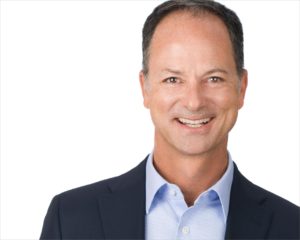
The recent decision by Twin Cities-based Sunrise Banks to sell two of its former branch buildings to local nonprofits illustrates the commitment of the company and its CEO David Reiling.
Sunrise Bank announced in December 2020 that it would close two branches — one on University Avenue and Vandalia Street, the other on the city’s east side — and transfer customers to its University Avenue branches on Marion Street and Como Avenue. The $1.9 billion Sunrise also has a pair of offices across the Mississippi in Minneapolis.
The bank worked closely with the nonprofit Creative Enterprise Zone on the sale of the Vandalia location. That space will be shared by two nonprofits: Habitat for Humanity of Minnesota and the Northcountry Cooperative Foundation. The other former branch, on Arcade Street near Johnson High School, was acquired by Land Bank Twin Cities on behalf of 30,000 Feet, a nonprofit arts and culture organization serving Black youth. The site will be used for after-school programming near Johnson High School, where more than 4-in-5 students receive free and reduced lunches.
Sunrise Bank deliberately sold the properties for less money than they could have otherwise received from another buyer, a strategy Reiling sees as a community investment. “We see this as a community asset and an investment that is long-lasting,” Reiling said of the locations, “and so to us it’s not even like a thought. This is what we try to do in seeking what the community needs and what it wants.”
This sale is only the latest instance of the bank’s commitment to serving the disadvantaged, a motivation inspired by Reiling’s father, prominent Minnesota real estate and banking leader William Reiling, and David Reiling’s experience of civil unrest in Los Angeles during the early 1990s.
Those experiences left David with the realization that maximizing profits was not the only path to success for banks. Financial institutions must also directly ensure their communities thrive by their work outside of their bank buildings. “My experience of the past was if you engage in the community, and you understand them, and if you help solve their problems,” he said, “and in the banking world if you can help provide access to financial services, bank accounts, loans, and if you have that trust, there’s a good business model there.”
Much of the bank’s work over the last two decades has reflected the Reilings’ community commitment. Sunrise has been certified as a Community Development Financial Institution since 2001, and 60 percent of its loans are to low-to-moderate income customers. The bank is a certified B-Corp, and it gives 2 percent of its pre-tax benefits back through contributions and donations.
This community work comes as the Twin Cities faces similar tension that Los Angeles did three decades ago. The 2020 murder of George Floyd and subsequent social unrest brought the longtime social entrepreneur flashbacks of his time in California and strengthened Reiling’s dedication to community investment, both financial and otherwise. “They just intensify it,” he said.
